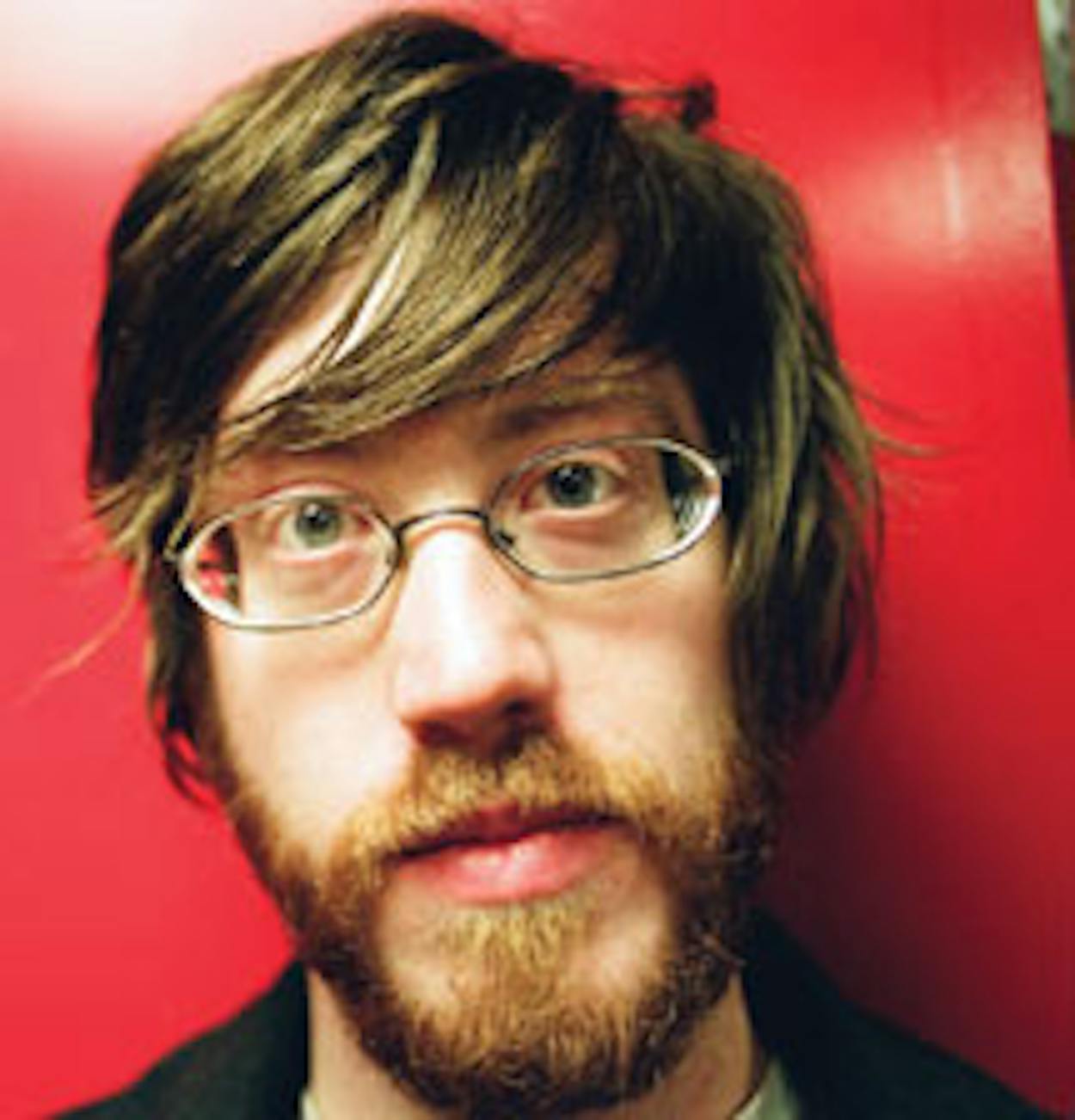The creative force behind Austin’s Okkervil River has taken on a new role as record producer of True Love Cast Out All Evil (Anti-), the first studio album from 13th Floor Elevators front man and psychedelic rock pioneer Roky Erickson in fourteen years. The 62-year-old Erickson has had a long road back from his early days, which were marked by youthful stardom, imprisonment, drug addiction, and mental illness. Now healthy and happy, he has crafted one of the finest recordings of his career, with some help from Sheff and his band.
You’ve said that Roky is both the most blessed and cursed person you’ve ever met. The things that happened to Roky in his life—any one of them would have broken me. His horrible experiences with drugs, being put in a maximum-security prison for the criminally insane, subjected to shock treatment and forced labor—he managed to get through it all with his creativity and his spark. He’s an incredibly positive, charismatic, warm person.
You were sent some sixty songs of Roky’s. Elevators outtakes, songs from Rusk [the institution where Roky was incarcerated], songs from the horror rock period, studio demos, and really shaky home recordings—even him in the prison yard playing. That stuff especially spoke to me; I felt I was getting this privileged glimpse into this secret world, and I wanted listeners to have the same experience.
This may not be the record a lot of Roky’s fans are expecting. That’s intentional. There’s a side to Roky that hasn’t really been explored much, and that’s what is on this record—the serious, mystical, spiritual songwriting that he does. He’s not a one-dimensional guy who only sings about two-headed dogs.
Some of these songs are wrenching, like “Please, Judge.” “Be and Bring Me Home” is just—Yeah, that’s my favorite. When I heard those songs, they broke my heart. It isn’t the sadness and how awful the things are that have happened to him; it’s the amount of hope and faith and love that he retains in spite of those things.
What is Roky’s relationship to this material after all this time? You look at a song like “Please, Judge” that he wrote when he had just been sent to prison [for possession of marijuana], in 1969. There’s a place inside of Roky where those emotions are, and he still knows how to get to them—there were these live-wire moments where he would be overtaken with these feelings and the songs would just be very intense. And then afterward he would be completely cheerful; it was like the storm passed over.
I understand a lot of this recording was done live in the studio. It certainly doesn’t sound that way. The magic of Pro Tools is that, after the fact, you can remove or isolate certain elements or play up others. I don’t think that the record’s vibey-ness would have been there if we hadn’t played everything live.
What’s new with Okkervil River? We’re working on a record. Producing is something I hadn’t really done before this Roky album, and it’s emboldened me to do my own production with Okkervil. It’ll be a while before it comes out, because I want to take my time.
You co-wrote a song with Norah Jones on her new album. How did that come about? She’s a fan, which I didn’t know. Our tour manager in Europe is Czech, and he had never heard of Norah Jones; she wanted to get backstage at one of our shows, and it wasn’t a big priority for him. She made it back somehow, and at first I thought it was just a girl named Norah. I was like, “Wait a second. Is this Norah Jones?” We got to know each other and thought it would be fun to write something together.
It’s a nice thing to get a song on a Norah Jones record. I feel so lucky that I get to do creative work for a living. I didn’t really have a leg up in the business—I didn’t really have anybody help me—so I never thought it would happen. So now that it’s happening, I just want to do as much as possible.







